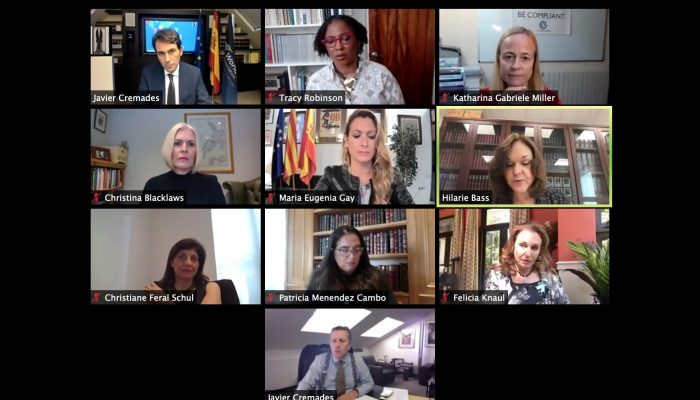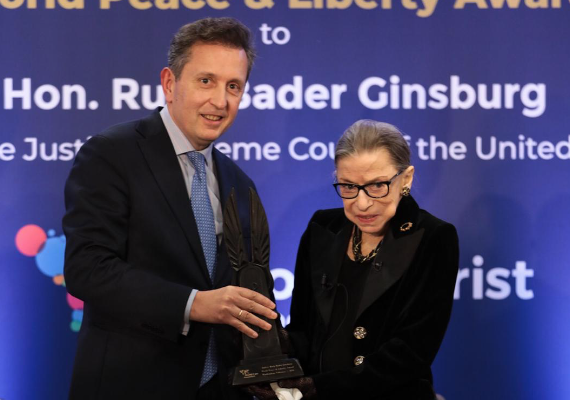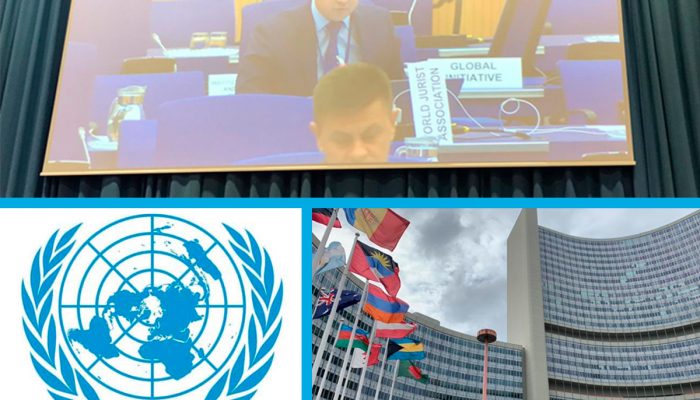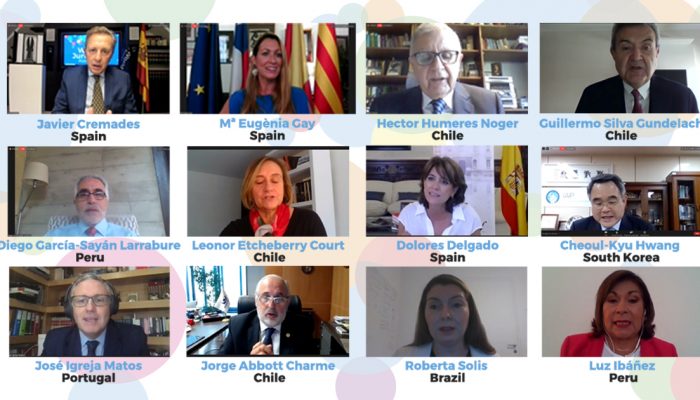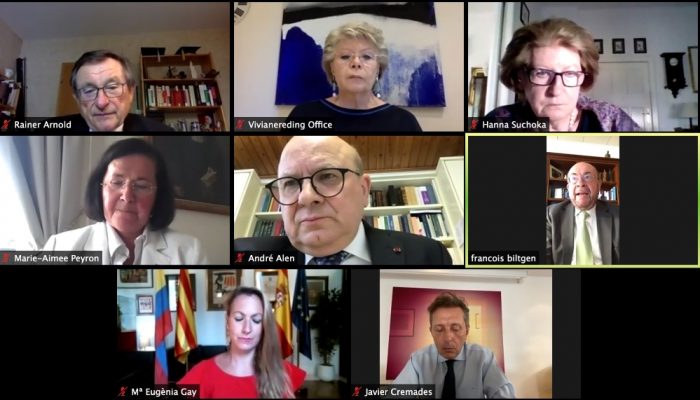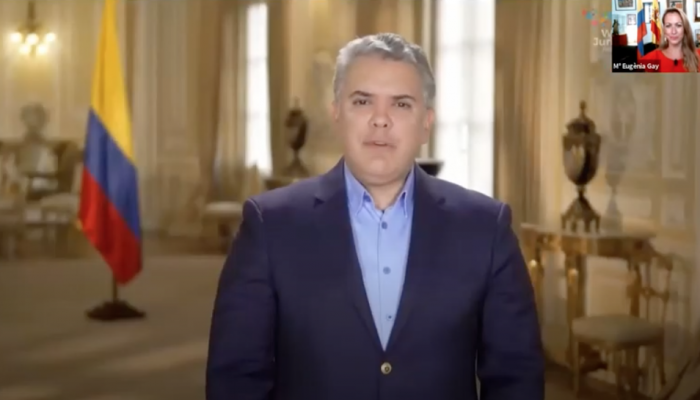Under the title “Covid-19: Boon or Detriment for Gender Equality?”, on October 14, the WJA and the Bass Institute for Diversity and Inclusion organized this much-needed and current panel of discussion. Eight women from different countries debated the topic, agreeing that overall the pandemic caused by Covid-19 has been problematic and disadvantageous for women.
The panel was moderated and chaired by Hilarie Bass, Trustee of the World Law Foundation, Founder of the Bass Institute for Diversity and Inclusion and President of the American Bar Association (2017-2018). The presentation of this event opened with a moving video tribute to the deceased U.S. Supreme Court Justice, Hon. Ruth Bader Ginsburg, who was presented with the WJA World Peace & Liberty Award in February 2020 in Washington, D.C. Justice Ginsburg was a pioneer in advocating for gender equality and respect for the rule of law, and WJA is committed to continuing the dissemination of her legacy.
The round of discussions was opened by Patricia Menendez-Cambo, Deputy General Counsel of SoftBank and General Counsel of the SoftBank Latin American Fund, who pointed out that the leading companies in gender parity rankings are achieving 50% more profitability compared to those with a lower gender parity index.
Meanwhile, Christiane Feral-Schuhl, President of the French National Council of Lawyers and former president of the Paris Bar Association, emphasized the “negative increase in cases of domestic violence that has been registered during confinement,” but at the same time recognized that the Covid-19 “has made us more proactive in our actions to achieve gender equality”.
In response to this position, Felicia Knaul, Director of the Institute for Advanced Studies of the Americas at the University of Miami and Professor at the University of Miami Miller School of Medicine, highlighted the collateral damage that the pandemic has done to women’s health. “We have evidence that fewer investments are being made in mothers and children, because the aid is going to Covid-19”. She also expressed concern about the increase in late detection of breast cancer due to the inability of patients to attend health centers given the risk of contagion from Covid-19.
Christina Blacklaws, immediate past President of the Law Society of England and Wales and President of Lawtech UK, stated that Covid-19 “has been dramatic and traumatic for gender equality, as it has posed an additional barrier for women” and questioned how to use the situation to turn it into an opportunity. In response to this question, she proposed “opting for a more flexible and agile way of working in which physical presence is reduced, so that women have more possibilities of developing their professional careers with a more hybrid and diverse way of working”.
Claudia Escobar, legal specialist in the fight against corruption and international consultant in the justice sector, assured that “the Inter-American Court indicates that the right of access to justice cannot be suspended in States or situations of exception” and pointed out that “international organisms for the protection of human rights warn about the importance of justice systems not being paralyzed”.
María Eugenia Gay, President of the World Jurist Association Spain and Dean of the Barcelona Bar Association, acknowledged that women are suffering from increasing precariousness in different ways, for example, in the wage gap, an issue she has called incomprehensible. With respect to teleworking, Gay, said that for women it has been more difficult to differentiate between professional and personal life, generating greater physical and psychological fatigue that men have not suffered.
The President of the European Association of Women Lawyers and Member of the Committee on Women in Innovation and Entrepreneurship of the Ministry of Science, Innovation and Universities of Spain, Katharina Gabriele Miller, stressed that in Spain, more than 600,000 people work as domestic workers, 88% of whom are women.
Furthermore, according to Tracy Robinson, President of the Inter-American Commission on Human Rights (2014-2015), the United Nations Independent Inquiry Mission on Libya, highlighted the gender disparity in high-level decision-making positions, stating that “if we analyze who holds the highest positions in the world, men are the heads of government in 90% of all States.
Javier Cremades, president of the World Jurist Association, closed the debate and acknowledged how ” unbelievable there are still so many barriers to gender equality” and said that Covid-19 is just another one and, to solve it, “we have to work to identify these problems that are a challenge for the whole society”.
This Opening Session has been the third session prior to the World Law Congress to be celebrated in Colombia in 2021. The President of the host country, Iván Duque, has also participated in it and, through an institutional video, assured that “we receive this congress as a recognition to the efforts of the Colombian society to defend the Rule of Law as a guarantor of freedom, order, peace and harmony”.
FULL SESSION: https://youtu.be/duaq7Tog6Ws
SUMMARY SESSION: https://youtu.be/Ah-l-zQ5GUE

